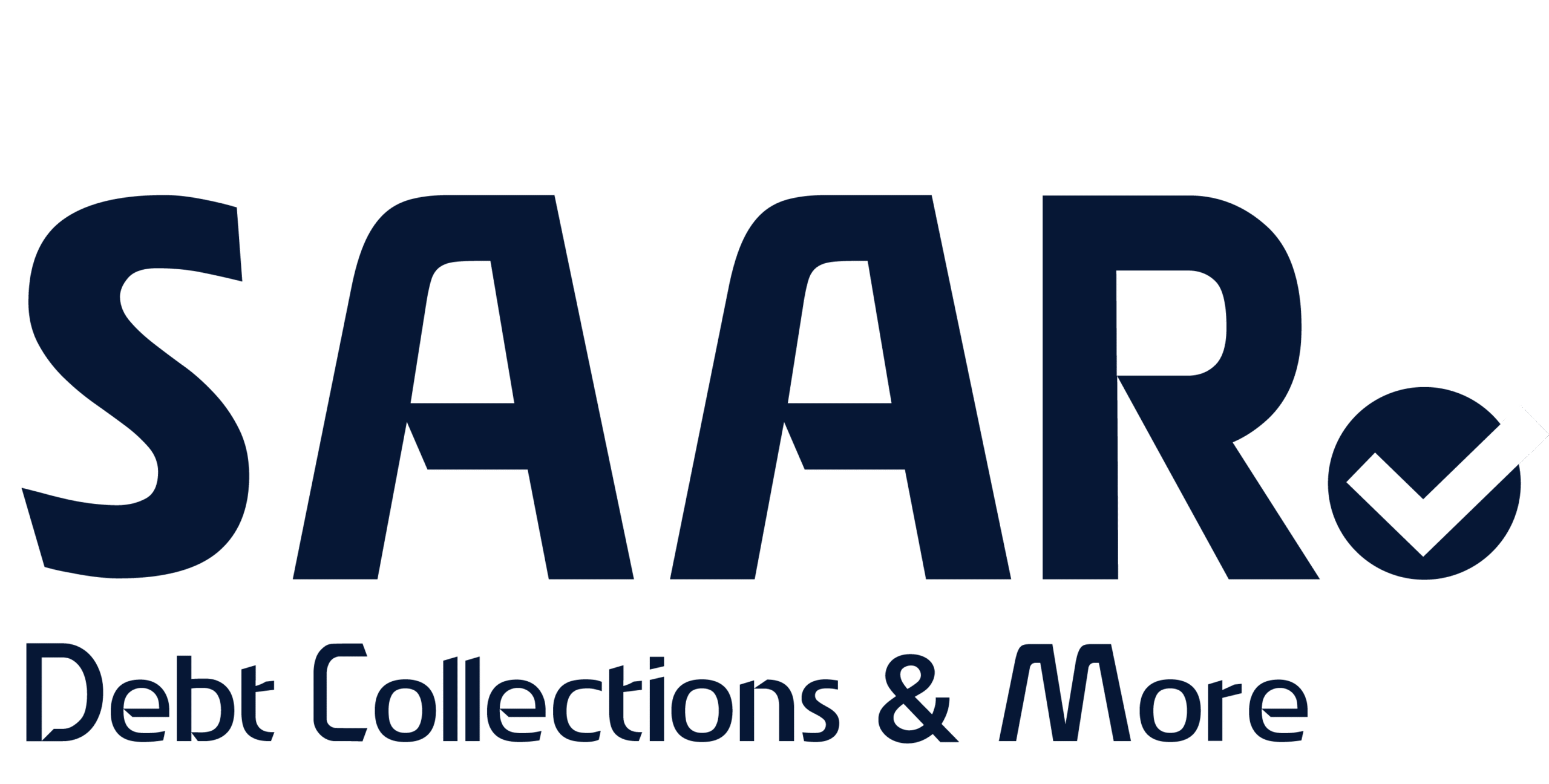Introduction
Debt collection is one of the most sensitive and complex activities in the business world, especially in developing countries, where economic, legal, and social factors intertwine to create an unstable and challenging collection environment.
If you’re a Saudi or international company operating in Africa, Asia, or Latin America, you’re likely facing ongoing challenges in recovering your dues. In this article, we dive into the details of these challenges and explain how to effectively manage them — highlighting Saar as a professional solution in these complex markets.
1. What Do We Mean by “Developing Countries”?
Developing countries are those experiencing economic growth that is often unstable or incomplete, and they commonly suffer from:
-
Weak legal infrastructure
-
High levels of bureaucracy
-
Underdeveloped financial systems
-
High debt levels among individuals and businesses
These include countries in Africa, South Asia, Latin America, and parts of the Middle East outside the Gulf region.
2. Major Challenges of Debt Collection in Developing Countries
1. Weak Legal and Judicial Infrastructure
-
Court systems are often slow, with cases taking years to resolve.
-
Courts may lack expertise in debt-related matters.
-
Absence or ineffectiveness of enforcement courts in many areas.
2. Lack of Financial Transparency
-
Many small and medium businesses don’t maintain accurate financial records.
-
The absence of clear financial disclosure regulations makes it difficult to verify and calculate debts.
3. Administrative Corruption and Bureaucracy
-
In some countries, debt recovery is hindered by corruption within administrative or judicial systems.
-
Informal “middlemen” increase costs and legal risks.
4. Weak Creditor Protection
-
Laws often favor debtors, especially in personal debt cases.
-
Enforcing court rulings can be difficult or ineffective.
5. Weak Payment Culture
-
In some societies, debt avoidance is common due to lack of enforcement or cultural norms that don’t strongly emphasize repayment.
6. Currency Instability
-
Exchange rate fluctuations can reduce the real value of recovered debts.
-
Some debts are denominated in weak local currencies, increasing risk.
3. Quick Comparison: Challenges in Developing vs. Developed Countries
| Aspect | Developed Countries | Developing Countries |
|---|---|---|
| Legal system | Organized and efficient | Slow and complex |
| Financial transparency | High | Low |
| Judicial enforcement | Effective | Limited or costly |
| Licensed collection agencies | Available and regulated | Limited or unlicensed |
| Data privacy and protection | Strict (e.g., GDPR) | Varies |
| Business environment | Stable | Politically/economically volatile |
4. What Can Companies Do to Overcome These Challenges?
1. Perform Due Diligence
Verify the financial and legal records of clients before signing contracts.
2. Draft Strong and Clear Contracts
Include detailed clauses for payments, penalties, and international arbitration.
3. Work with Specialized International Collection Firms
Partner with experienced companies with a strong local and global network, such as Saar.
4. Use Arbitration Instead of Court
Arbitration often provides faster and less expensive resolutions in these markets.
5. Start Early Negotiations
Don’t wait until the issue escalates — initiate early and amicable negotiations to resolve disputes.
5. How Does “Saar” Handle Debt Collection Challenges in Developing Countries?
Extensive Regional Coverage
Saar operates in over 40 countries, especially across Africa and Asia, through partnerships with trusted local legal firms.
In-Depth Local Legal Knowledge
Saar works with legal teams familiar with each country’s regulations — speeding up processes and increasing recovery chances.
Multi-Level Strategies
-
Starts with amicable collection
-
Moves to arbitration if needed
-
Pursues legal action only as a last resort
Professional Client Reporting
Regular reports outlining collection rates, obstacles, and recommendations.
6. Case Study (Real Example)
A Saudi trading company had overdue debts with partners in Nigeria and Kenya.
They hired Saar to handle the collections, and the results were:
-
60% of the amounts recovered in the first 3 months
-
30% of cases moved to local arbitration
-
Monthly transparent reports provided on the legal status of each case
Result: Over 85% of the total debt was recovered within 6 months.
Conclusion
Debt collection in developing countries is not impossible—but it demands deep local insight, precise planning, and a reliable partner.
With increasing legal and economic complexities, companies like Saar stand out as practical and secure solutions to recover financial rights without falling into endless legal traps.
Do you face challenges collecting debts in Africa, Asia, or Latin America?
Contact Saar now for a free consultation and a full evaluation of your company’s debt collection needs.

